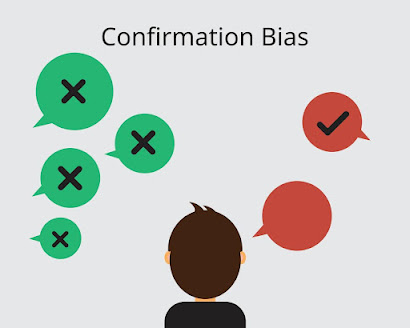Confirmation bias is a pervasive cognitive phenomenon that influences the way we perceive and process information.
In this article, we'll delve into the depths of confirmation bias, exploring its psychological underpinnings, its impact on decision-making, and strategies to avoid falling into its trap.
Understanding Confirmation Bias
Confirmation bias, simply put, is the tendency to favor information that confirms our preexisting beliefs or values. It's a subtle yet powerful force that shapes our perceptions and decisions on a daily basis. Imagine reading news articles that align with your political views or seeking out opinions that validate your own - that's confirmation bias at play.
Impact on Decision Making
The repercussions of confirmation bias extend far beyond personal opinions. When making decisions, whether in personal relationships or professional settings, individuals often unknowingly let confirmation bias cloud their judgment. This can lead to suboptimal choices, missed opportunities, and even serious consequences.
Psychological Aspects
To truly grasp confirmation bias, it's essential to understand the cognitive processes that contribute to it. Our brains have a natural inclination to seek information that confirms what we already believe, creating a comfort zone that reinforces our worldview. This phenomenon has evolutionary roots but can pose challenges in today's diverse and complex society.
Recognizing Confirmation Bias in Yourself
The first step in overcoming confirmation bias is self-awareness. By acknowledging our predispositions, we can actively work towards recognizing when confirmation bias is influencing our thoughts and actions. Common signs include dismissing contradictory information and selectively exposing ourselves to like-minded individuals.
Strategies to Overcome Confirmation Bias
Breaking free from confirmation bias requires cultivating critical thinking skills. Actively seeking out diverse perspectives, questioning assumptions, and consciously exposing ourselves to opposing views can help dismantle the walls of bias. Keeping an open mind, even when it challenges our beliefs, is crucial for personal and intellectual growth.
Confirmation Bias in the Media
The media plays a significant role in perpetuating confirmation bias. Whether through selective reporting or algorithmic personalization, media platforms can unintentionally contribute to the echo chamber effect. Responsible media consumption involves being aware of these influences and actively seeking balanced sources of information.
Educational Approaches
Addressing confirmation bias at its root requires educational interventions. Teaching critical thinking skills from an early age and incorporating diverse perspectives into curricula can mold future generations with a more open-minded approach to information.
Confirmation Bias in the Workplace
The workplace is not immune to confirmation bias. From hiring decisions to project management, biases can inadvertently seep into professional environments. Creating awareness, implementing diversity and inclusion programs, and fostering a culture of unbiased decision-making are vital for organizational success.
Avoiding Confirmation Bias in Relationships
Confirmation bias can strain personal relationships. Nurturing open communication, actively listening to differing opinions, and building empathy can foster understanding and strengthen connections.
Case Studies
Real-life examples showcase the positive outcomes of overcoming confirmation bias. Whether in politics, science, or business, individuals who have actively sought out diverse perspectives have often achieved more robust, well-informed outcomes.
Conclusion
In conclusion, understanding and overcoming confirmation bias is a crucial step towards informed decision-making and a more inclusive society. By actively challenging our preconceptions, seeking diverse perspectives, and embracing open-mindedness, we can break free from the shackles of bias and contribute to a world that values unbiased, rational thinking.


Comments
Post a Comment